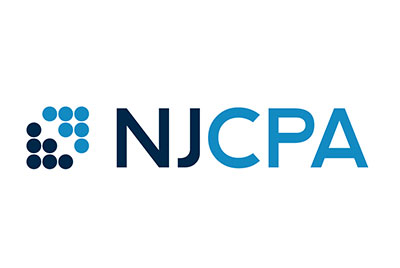Property Taxes, State Spending and Infrastructure Improvements Should be Top Priorities for Governor-Elect Sherrill,
Say New Jersey CPAs
–
November 12, 2025

Fewer
Regulations and State Pension System Reform Also Recommended
Ahead of the Nov. 4 New Jersey gubernatorial election, more than 600 certified public accountants (CPAs) and accounting and finance professionals surveyed by the New Jersey Society of Certified Public Accountants (NJCPA) cited reducing property taxes, keeping state spending in check and improving the state’s infrastructure as the highest economic priorities for the next Governor’s term.
The NJCPA polled its members in a three-part survey to determine what issues should be the focus of the new administration and what actionable solutions make sense. The top five priorities were as follows:
- Reduce property taxes.
- Audit state agencies for overspending and waste.
- Improve the state’s infrastructure.
- Restructure the public worker pension system.
- Reduce regulations for businesses.
Respondents noted that consolidating services, such as police, fire and school personnel, among neighboring towns would reduce property taxes since a portion of property tax revenue collected for schools comes from taxes. They recommended the use of financial incentives to lower taxes as well as eliminating the exclusions that are permitted under New Jersey’s 2% property-tax levy cap for local municipalities and school districts and looking at the state’s entire tax base for inefficiencies. They also favored making the state’s Stay NJ program, which offers specialized property tax relief, permanent.
Implementing rigorous reviews of spending in all state government agencies to uncover any fraud and waste was a third top focus for respondents. They cited the need to provide more clarity and transparency over the state’s budget, now $58.8 billion for fiscal year 2026; modernize technology and reporting to eliminate human error; and have finance committees for every municipal government department. They also recommended increasing the State Controller’s audit function and adding inspector general functions to each department.
Respondents also said a high priority should be placed on improving the state’s infrastructure, particularly keeping public transportation accessible and efficient. They said competitive bidding should be subject to more transparent public oversight, and any infrastructure improvements should be made without increasing tolls.
Restructuring and revamping New Jersey’s pension system is a must, according to survey respondents. Making the pension system for new employees closer to the private sector was cited numerous times. With a state pension liability of more than $90 billion, respondents flagged the importance of staying economically competitive as a state. A 401(k) program for all new state employees should be implemented as well as ending payments of double and triple pensions to employees of multiple municipalities, they said.
Reducing tedious business regulations at all levels was also noted as a priority for the new administration. Specifically, respondents said making it easier to create and register businesses as well as dissolve businesses would help make the state a more business-friendly environment. They recommended reducing permit fees, eliminating the $150 per partner filing fee for New Jersey LLCs and using more online portals for streamlining licensing and permits.
“These survey results provide a wealth of information from CPAs and finance professionals who help steer business growth and reduce wasteful spending in all industries across New Jersey every day. Our members and the NJCPA stand ready to assist the incoming administration and Legislature in this great state of ours,” said Aiysha (AJ) Johnson, MA, IOM, CEO and executive director at the NJCPA.